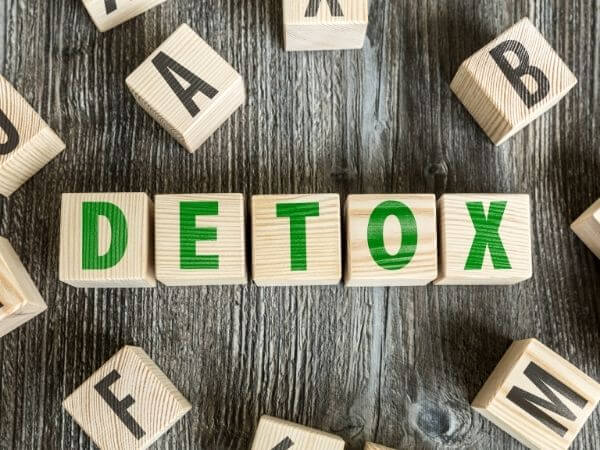
Getting off suboxone is a difficult and exhausting process. It requires proper treatment, guidance, and medication, which usually require professional assistance. In addition, using suboxone, similar to other illicit substances, hardwire addictive behaviors in a person, resulting in a lower chance of recovery during detox attempts. However, this does not mean that getting off suboxone is impossible.
In order to understand how addiction recovery works, it is first important to know about the substance being used – to know what suboxone is.
What is Suboxone?
Suboxone is a complex prescription drug that treats opioid addiction. Even if it is a medicine for addiction itself, a person can be dependent on the relief and physical effects that suboxone provides. Suboxone also contains a combination of medicines, particularly naloxone and buprenorphine. To explain further, naloxone, or also known as Narcan, is used to treat opioid overdose, while buprenorphine is used to address opioid use disorder.

As an opioid-sufficiency drug, suboxone decreases the symptoms of withdrawal, but can also be addicting when misused. This only shows that both detoxification and treatment must be guided by professional health services, to make sure that your recovery is progressing, and does not lead to further complications.
Safest Way to Detox from Suboxone Abuse
The safest way to neutralize suboxone abuse is through a proper, planned, and personalized treatment. To be specific, inpatient suboxone detox treatment is a program that both guides the person in the process of recovery, and heals the substance use disorder through appropriate medications. An inpatient suboxone detox treatment addresses the drug withdrawal symptoms through therapies that divert the person away from destructive behavior. As substance use disorder relates to negative mental and physical changes, self-medication and self-detox are not advisable.
There are surfacing materials online, which say that suboxone dependency can be addressed through quick and short-term methods, particularly rapid suboxone detox. However, this is not reliable, and can even be dangerous. Aside from the relapse tendency that sudden detox incites, short-term methods often require large loads of alternative opioid-sufficiency medicine. This means that drug overdose, misuse, and new addiction can develop because of unsupervised recovery. Lastly, according to a study by the National Institute on Drug Abuse, withdrawal is not easier with rapid suboxone detox.
Long-term inpatient detox may take some time, but it is a safe, efficient, and effective way because of its step-by-step progress. Seeking professional help may be scary at first, but it is necessary to have you or your loved one’s productive life back.
4 Helpful Tips to Make Your Suboxone Detox More Manageable
Suboxone detox is mentally draining and physically exhausting. It will require time and energy beyond everyday responsibilities, because of the absence of the substance one is reliant on. In addition, detox will even be more difficult, especially when the person is not surrounded by his or her loved ones inside the treatment center. Regardless, to make the situation more manageable, there are still useful tips that may help you or your loved one in the detox process.
Seek peer and family support systems

Detox and withdrawal symptoms may be more uncomfortable and difficult to experience if you feel that you are alone in your journey. Try to be engaged in peer support systems inside rehab centers, or even with your family if you are undergoing outpatient treatment. Having people who believe in you can go a long way.
Find new interests and hobbies
Finding and doing other activities can distract you from suboxone and other drug cravings. From fishing to meditation, there are multiple hobbies where you can choose to spend your time for the day. To be specific, yoga is a beneficial hobby for addiction recovery. These activities will help burn idle moments, which can lead to negative thoughts.
Exercise daily and engage in physical activities

Nobody goes wrong with exercising daily. Multiple studies prove that working out boosts our mental health. To make exercise less boring, you can also stimulate your body through dance and sports, such as football and swimming. Most treatment centers in California have grounds and spaces for physical activities.
Consult with your doctor and substance abuse counselor
You may consult and raise your concerns with your doctor and counselor. Informing them about the difficulties you are experiencing can help them to help you better. They may provide program plans, which may help in addressing withdrawal symptoms during detox.
Common Risks Encountered When Getting Off Suboxone
Getting off suboxone does not progress in a linear path. There will be times where a person will experience harsher withdrawal symptoms and uncomfortable days. However, the negative physical and mental conditions may still come for those who are quitting addictive substances. Although withdrawal symptoms differ between substances, suboxone can produce the following reactions in the brain and body:
- Irritability and discomfort
- Muscle fatigue and pain
- Anxiety and tension
- Sweating and slight tremors
- Depression
- Nausea and headache
- Loss of appetite and motivations
In addition to these, the risks that one encounter when getting off suboxone can vary between individuals. Our bodies react differently when treated for drug dependence. Although some may experience the symptoms to a greater degree, the assigned doctor or counselor will help you in managing and lessening these throughout the detox. It is also important to remember that the common risks and symptoms are often just a result of acute or sudden quitting – it is the reason why self-detox or self-medication is not advisable.
Suboxone Withdrawal Timeline
A complete withdrawal from suboxone usually takes from two to six months. It comprises observable phases, based on the physical and mental changes that will occur subsequent to when the person has quitted from addictive substances. Although withdrawal takes a long time, it progresses through a trackable timeline with multiple stages. The following is a sample timeline of withdrawal from suboxone.
- Days 1-7: Physical symptoms, such as irritability, or the common risks that were mentioned will show up during this time. Medication can be given in the treatment center to ease the symptoms.
- Weeks 2-3: Psychological signs may start manifesting in these weeks. To be specific, anxiety may start to kick in.
- Weeks 4-6: After the first three weeks, depression and a loss of motivation may come, as the process continues to be mentally draining. It is also advisable to go through therapy sessions to address this.
- Month 2-3+: The time after the first two to three months will be when relapse may likely occur. Cravings can still happen even after many months of soberness. This makes counseling and guidance important during recovery.
Suboxone Drug Detox Treatment in California
Suboxone drug detox treatments, both inpatient and outpatient, are done through proper planning, and personalization of the program. Most of the time, it incorporates buprenorphine treatment, wherein an alternative opioid treats suboxone dependence and substance use disorder. Recovery programs, such as this, will not just restrict you from drug consumption, but also allow medications for a more comfortable journey. In California, there are detox and treatment centers, which specialize in providing a venue and program for getting off suboxone.
Seeking treatment may be scary at first. However, professional help will guarantee stable progress, which allows you to have a more productive life sooner. Chances of relapse decrease as well as risky symptoms. Finding a professional suboxone detox center in California is within reach.
At Restore Health and Wellness, we provide addiction treatment programs designed for quitting suboxone. We have treatment plans that target specific withdrawal timelines, addressing difficulties that self-medication cannot solve. Allow us to help.
Let us discuss how we can start you or your loved one’s recovery. Visit us at 6918 Owensmouth Ave Canoga Park, CA 91303, or give us a call at (888) 979-4570 to take the first step.













